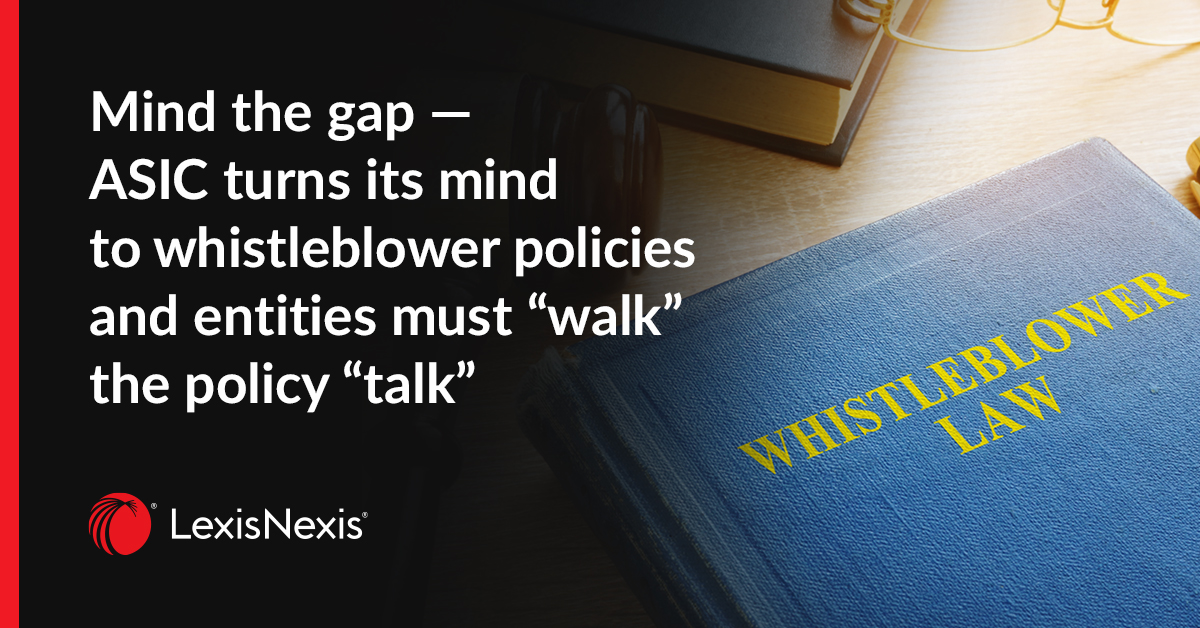
New legislation on the cards, while managing economic calamity
12 August 2022 12:00
Antoaneta Dimitrova, Head of Current Awareness at LexisNexis®
As global and local economic conditions continue to tighten, the challenge facing newly elected Anthony Albanese who has kicked off his legislative agenda already is growing by the minute. The PM has said he wanted to prioritise climate change targets, the establishment of a federal anti-corruption body, as well as plans to mandate domestic violence leave, and tackle worsening skills shortages during his first 100 days in office.
Key changes, aligned with commitments made in Labor’s Secure Australian Jobs Plan to ‘deliver more secure jobs, better pay and a fairer industrial relations system’ include the establishment of Jobs and Skills Australia - a new and independent statutory skills body that would drive VET education and strengthen workforce planning in partnership with employers, unions and the training and education sector. This legislation would also repeal the National Skills Commissioner Act 2020. The two Bills Jobs and Skills Australia Bill 2022 and Jobs and Skills Australia (National Skills Commissioner Repeal) Bill 2022 were introduced on Wednesday 27 July.
Legislation to enforce 10 days paid domestic and family violence leave, as part of a broader proposal to fund frontline services, and create a national definition for domestic violence that would include coercive control has also seen the light of day as promised in the Fair Work Amendment (Paid Family and Domestic Violence Leave) Bill 2022 also introduced in late July amending the Fair Work Act 2009.
This is just the beginning. Several areas of climate change policy remain under a question mark. One such area involves plans to task Australia’s intelligence agency to embark on a comprehensive review into the national security threats associated with climate change such as disruption to trade, extreme natural disaster events, and the management of national emergency services into the future. The move is reportedly backed by a former Australian Defence Force chief who has sounded repeated warnings for governments to seriously consider regular and more severe climate risks and mitigation strategies.
Another grey area in the Government’s climate change and emissions reduction policy is linked with considerations around joining the US in a push to reduce global methane emissions by 30 per cent from 2020 levels by the end of the decade. In mid-June, as Australia cemented its pledge to lower greenhouse gas emissions by 43 per cent below 2005 levels by 2030, and to net zero by 2050, US President Joe Biden convened his third Major Economies Forum on Energy and Climate (MEF) to build on progress achieved at COP 26 by further strengthening climate action. The US President introduced the plan at the 2021 Climate Summit in Glasgow, signing more than 100 countries to the pact at the time, with the Morrison Government refusing to commit. Australia, a major methane emitter who attended the virtual meeting this year alongside the UN Secretary General and representatives from Argentina, Canada, Chile, China, Egypt, the European Commission, France, Germany, India, Indonesia, Italy, Japan, the Republic of Korea, Mexico, Nigeria, Norway, Saudi Arabia, Turkey, United Arab Emirates, United Kingdom, and Vietnam is now actively looking at signing up to it. This is something that would require extensive consultation with the agriculture and oil & gas industry as well as legislation to enact, with Farmers for Climate Action flagging that farmers in Australia already lead the way on methane reduction overall.
Backing methane emissions reduction may add to the woes of an energy sector already in strife following the recent energy crisis. In mid-June, the Australian Energy Market Operator (AEMO) had to suspend the spot market in the National Energy Market for the first time in Australian history to prevent blackouts and load shedding, and ensure businesses and households got power, providing short-term relief to the Eastern and South-eastern States most affected by the shortage. The Federal Government has warned large gas producer-exporters it would intervene through legislation and export controls if the domestic gas supply market remained in deficit during the winter months.
A further area marked for legislative reform includes the Your Future, Your Super (YFYS) laws. Financial Services Minister and Assistant Treasurer Stephen Jones stressed in early July that the Albanese Government planned to review the operation of the YFYS laws this year, following completion of the second round of MySuper performance tests in August. The YFYS reforms, introduced by the former Government, were brought in to improve transparency and accountability in the superannuation industry, however there are concerns the laws may have unintended consequences. "Funds must always be held accountable for their performance. In doing so, accountability mechanisms must not simultaneously create perverse or unintended outcomes for members," Mr Jones said. "The Government is aware of concerns that the YFYS laws have the potential to create such outcomes by discouraging certain investment decisions or certain infrastructure investments. Treasury will be tasked in its review to examine and consider the operation of the new laws in this context." Mr Jones said the review would mean extension of the reforms would be paused for a period of 12 months, while the Government was planning to release Exposure Draft legislation for consultation, including the commencement of consultation on Exposure Draft regulations for amendments to the annual members’ meetings disclosure requirements in the Superannuation Industry (Supervision) Regulations 1994.
More legislative reforms likely to ramp up include legislation curbing sexual harassment with newly appointed Employment and Workplace Relations Minister, Tony Burke, said to be looking at reports detailing appalling working conditions’ standards for women related to harassment in various industries from the arts and entertainment sector through to fly-in fly-out workers in the mining and resources industry.
Other legislative changes may come about from:
- A review into Division 105A of the Criminal Code (Cth) by the Independent National Security Legislation Monitor (INSLM). Division 105A of the Criminal Code was introduced by the Criminal Code Amendment (High Risk Terrorist Offenders) Act 2016 (2016 HRTO Act) in 2016 and establishes a scheme for the continuing detention of 'terrorist offenders' where a court is satisfied that a person posed an unacceptable risk of committing a serious terrorism offence if released into the community, at the end of their custodial sentence. The INSLM will be considering such issues as: whether Div 105A is proportionate to threats of national security; if the provisions are consistent with Australia's international obligations to combat terrorism; if the provisions are consistent with Australia's human rights obligations; whether the provisions currently provide adequate procedural fairness and/or safeguards for high-risk terrorist offenders; the interaction of these provisions with similar State post-sentence detention regimes; and the interaction of Div 105A with other provisions of the Criminal Code, such as Divs 104 & 105. Public hearings are currently scheduled until 31 August.
- Legislation to abolish euthanasia bans in Northern Territory and the ACT, with the Albanese Government saying it would bring the debate to Parliament via a conscience vote rather than direct Parliamentarians to back the Bill, when it is introduced, however Independents, Backbenchers and Minor Parties have said they would reject another lengthy process considering similar Bills have already been put to the test in other jurisdictions.
- Global and local regulation for Buy Now, Pay Later products, services and companies is imminent. Financial Services Minister Stephen Jones said that the era of self-regulation for the industry was ending. The Senate Select Committee on Financial Technology and Regulatory Technology, chaired by Liberal senator Andrew Bragg in 2020, published an interim report that said “Industry self-regulation provides an initial framework to protect innovation which can later be backed up by a policy statement or a form of co-regulation (collaboration between industry and government)” but dissenting comments from Labor Senators at the time said self-regulation under a voluntary code could fail to properly protect consumers. The Committee report had at the time banked predominantly on evidence from the lobby group that represented the finance sector, the Australian Finance Industry Association, that claimed hardship cases were minimal. The Financial Services Minister flagged that the sector had evaded regulation due to ambiguity in the National Credit Code, with some companies having signed up to a voluntary code of practice, however the current Government plans to undertake a consultation and a strategic review with industry and consumer protection groups to establish what the gaps were. Legislation is expected within 12 months to enforce the industry's code of practice, possibly as part of the National Credit Act.
- Calls to strengthen whistleblower protections, with legislation to emerge, possibly as part of legislating for a federal corruption regulator. A Parliamentary Inquiry held in 2017 had previously made recommendations for outdated laws shielding public and private sector whistleblowers to be reformed, yet while the Liberal Government agreed to many of the Inquiry’s recommendations, either fully, or in part it did not take them any further.
- Eliminating ‘gag clauses’ preventing charities from political advocacy.
Further underpinning the new Government, and the adjustments it wants to make, several departmental changes have come into force since July 1. There is a new Department of Climate Change, Energy, the Environment and Water, that alongside the Department of Agriculture, Fisheries & Forestry replaces the Morrison Government’s Department of Agriculture, Water & Environment. The former Department of Education, Skills and Employment was been split in two and is being replaced by the Department of Education, and the Department of Employment & Workplace Relations. The Department of Health will now be known as the Department of Health & Aged Care, while the Department of Industry, Science, Energy & Resources has been renamed to the Department of Industry, Science & Resources. Lastly the Department of Infrastructure, Transport, Regional Development & Communications now includes the Arts portfolio to be known as the Department of Infrastructure, Transport, Regional Development, Communications & Arts.
In line with this. key administrative changes include the Department of Finance assuming responsibility for deregulation and data policy, and taking former PM Malcolm Turnbull’s brainchild, the Digital Transformation Agency, under its wing. The Department of Home Affairs will oversee emergency management and natural disaster response and mitigation now, taking the National Recovery and Resilience Agency under its responsibilities, while losing criminal law enforcement and policy, as well as the Australian Federal Police, all of which now sit in the Attorney-General’s portfolio.
Australia’s 47th Parliament convened for the first time on Tuesday 26th of July, with a proposed parliamentary sitting schedule showing eight sitting weeks in total between July and December, including a Federal Budget, expected on October 25.
To access original media releases, text of legislation, and details around measures used as examples in this article, login to Capital Monitor at: www.capitalmonitor.com.au.
Latest Articles
-
 3 tips for banking and finance lawyers when responding to an ASIC enquiry, and how to avoid misleading or deceptive conduct.
3 tips for banking and finance lawyers when responding to an ASIC enquiry, and how to avoid misleading or deceptive conduct. -
 Significant increases to competition and consumer law penalties have commenced and sweeping reforms to the unfair contract terms regime will follow in 12 months’ time.
Significant increases to competition and consumer law penalties have commenced and sweeping reforms to the unfair contract terms regime will follow in 12 months’ time. -
 The Australian Securities and Investments Commission (ASIC) is calling on Australian CEOs, from public companies, large proprietary companies and corporate superannuation trustees to review their whistleblower policies and processes to ensure compliance with private sector whistleblower laws.
The Australian Securities and Investments Commission (ASIC) is calling on Australian CEOs, from public companies, large proprietary companies and corporate superannuation trustees to review their whistleblower policies and processes to ensure compliance with private sector whistleblower laws.
Contact our Experts Now

 LexisNexis
LexisNexis